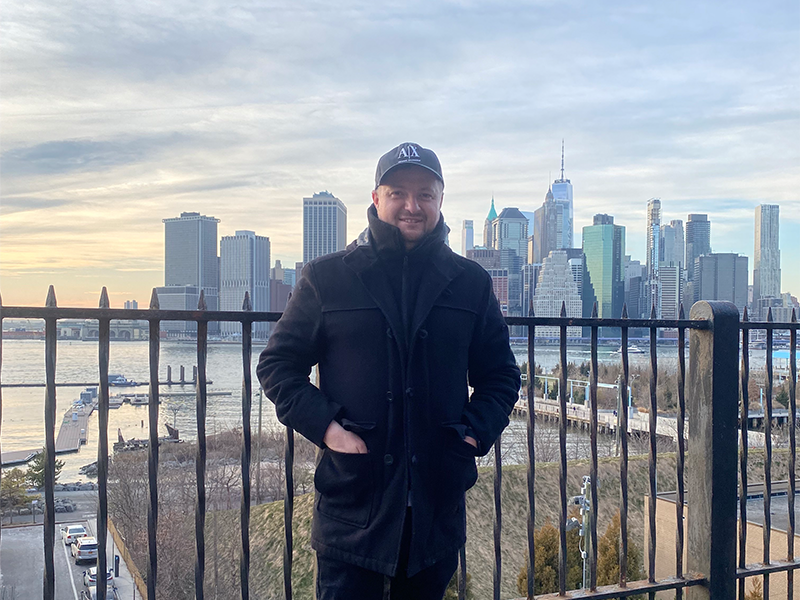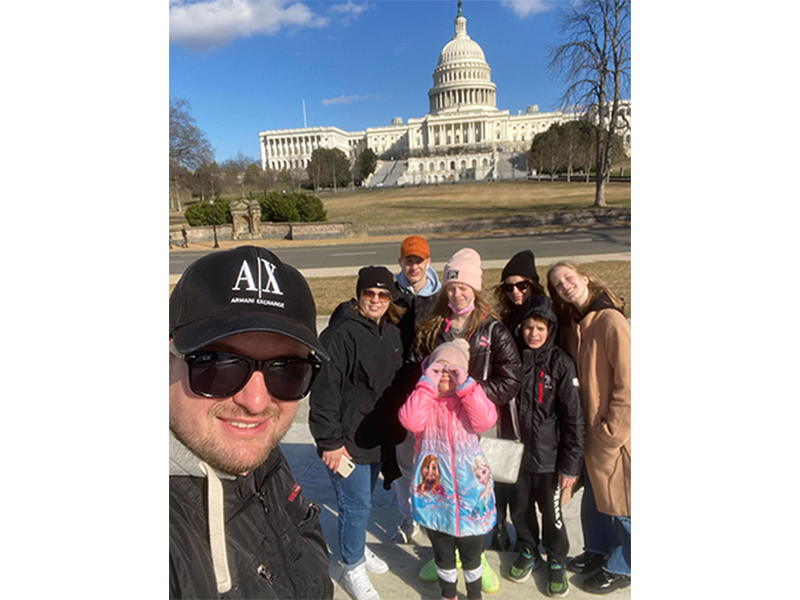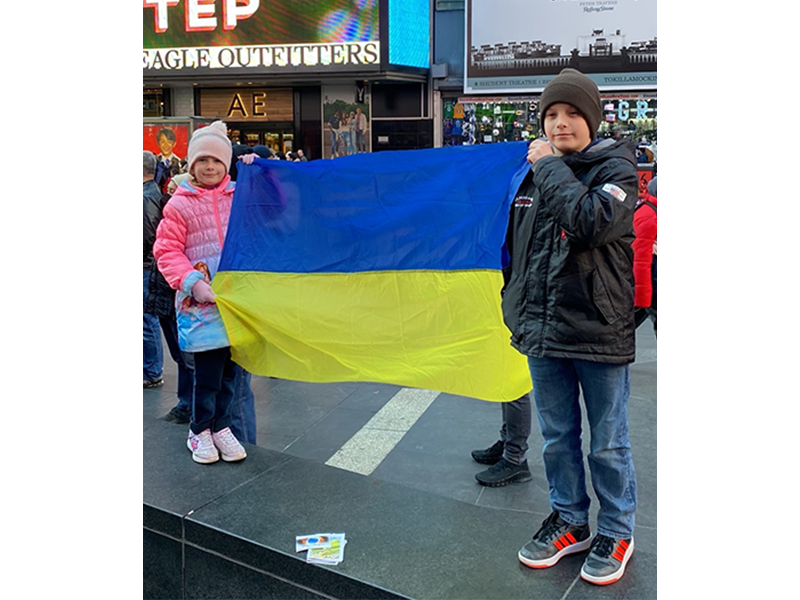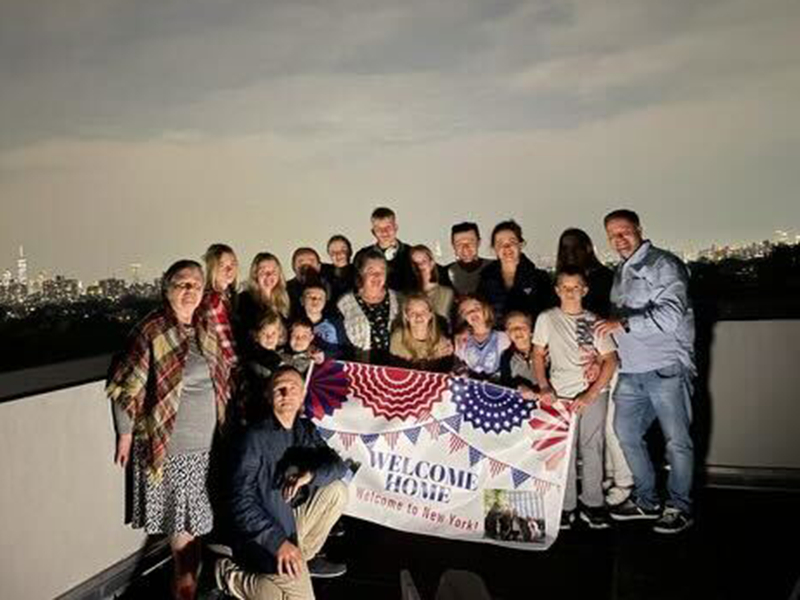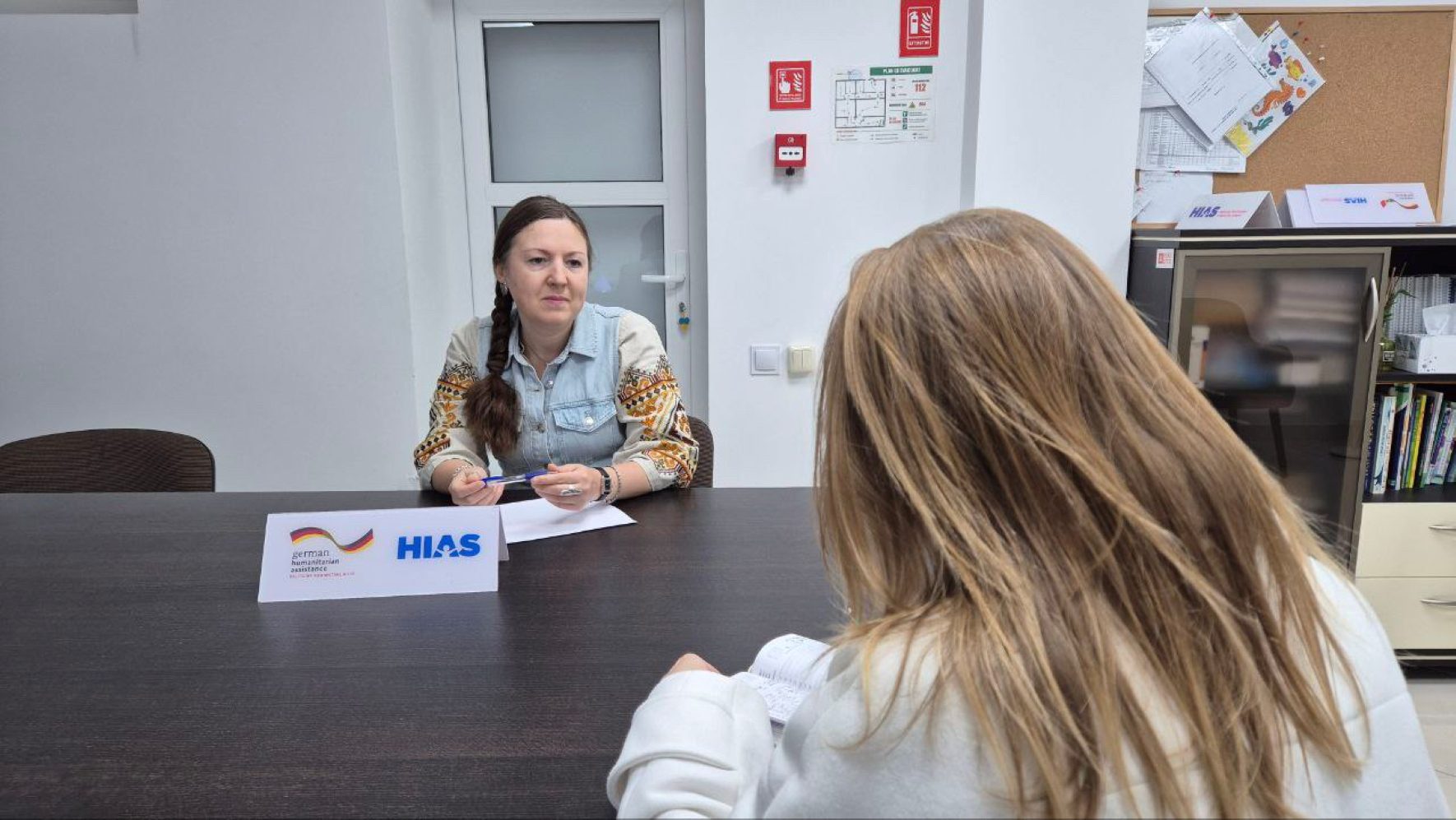Hope and Questions as U.S. Pledges to Resettle 100,000 from Ukraine
By Ayelet Parness, HIAS.org
Mar 31, 2022
“We heard from President Biden that he is opening up to 100,000 refugees,” said Roman Chukhvitsky, a Ukrainian refugee who arrived in New York with his wife and six children in September 2021, “but I don’t understand how it works, from a practical perspective.”
Many are wondering about the same thing in the wake of the Biden administration’s March 24 announcement that the United States will welcome Ukrainians and others impacted by Russia’s invasion of Ukraine. While the pledge is encouraging news for refugee advocates and those in the U.S. hoping to be reunited with family still in Ukraine, it also leaves many questions unanswered.
Chukhvitsky, who was resettled with help from HIAS, feels “blessed” to have arrived in the U.S. at just the right time. He joined his parents, his sister, and her family through the Lautenberg program, a Soviet-era family reunification program for members of historically oppressed religious minorities, including members of certain Christian groups. For Chukhvitsky, a proud Christian, a major drive for coming to America was the desire that his children experience “a freedom of belief which nobody hinders.”
For weeks, his hometown of Irpin has been the site of intense fighting, and he receives a steady stream of updates from friends and family. A few weeks ago, Chukhvitsky heard heartbreaking news from Irpin: shrapnel from a Russian military strike killed a friend of a friend, 26-year-old Anatoly Berezhnyi, along with a family he was helping to evacuate, just a 10-minute walk from Chukhvitsky’s former home.
While he hopes for a swift end to the war, he also hopes that his wife’s parents and siblings, as well as his 78-year-old great aunt and the cousin who cares for her, will be able to join his family in safety.
“Our biggest hope is that there is a mechanism in place as soon as possible to accept refugees and reunite families,” Chukhvitsky said.
Chukhvitsky isn’t alone in wondering how the U.S. will resettle refugees from Ukraine. HIAS staff members closely involved in the resettlement process, including those at HIAS New York, are left with more questions than answers.
“We are working with community partners to prepare to receive those displaced by this crisis,” said Alla Shagalova, director of HIAS New York. “But at this point, it is unclear who will qualify to come to the United States, what the process is, how long the process will take, what their immigration status will be when they arrive, and whether that status will provide a path to permanent residence.”
For HIAS and the broader community of refugee advocates it is important that the administration learns from the mistakes of the rushed Afghan evacuation and accept displaced Ukrainians as refugees on an expedited timeline. Last August, following the Fall of Kabul, most Afghans airlifted to the U.S. were allowed into the country with the status of humanitarian parolees, which does not provide a clear path to permanent residency.
“We applaud President Biden’s leadership by committing to share responsibility with Europe by welcoming 100,000 Ukrainians to the United States, especially those who have family here or are particularly vulnerable,” said HIAS President and CEO Mark Hetfield in a March 24 statement. “As with the Kosovars evacuated from Macedonia in 1999, we urge that they be brought in with all the protections and benefits of refugee status, and be assisted with voluntarily returning home to Ukraine when it is safe to do so.”
HIAS’ network of resettlement partners stands ready to assist displaced Ukrainians, as does the American Jewish community. Many Jewish leaders, partner organizations, and congregations have already been in contact with HIAS to offer their time and resources to support Ukrainians coming to the U.S.
In addition to preparing to assist with resettlement, HIAS is providing legal advice to Ukrainians applying for Temporary Protected Status. In Europe, HIAS has been working with partner organizations and Jewish communities in Ukraine, Poland, and neighboring countries, to support the over 4 million refugees who have fled Ukraine and 6.5 million people who have been internally displaced by Russian activity.
Since the invasion began, HIAS New York has been fielding a high volume of calls from those worried about their loved ones who have remained in Ukraine or fled to surrounding countries, asking how they can bring their family and friends to America.
Igor Chubaryov, a HIAS New York program manager, shared the story of a HIAS client whose elderly parents were scheduled to join him in New York on March 1. Then war broke out, the U.S. closed its Ukraine embassy, and their journey was canceled along with all other flights out of the country. The couple are now in hiding in a remote area of Ukraine, spending most of their days in the building’s bomb shelter. It is unclear when or how they will be reunited with their son.
“People are desperate,” said Chubaryov, who has worked assisting Ukrainian refugees since 1989 – just months after he himself arrived from the Soviet Union with HIAS’ help. “They call me all the time; my phone is ringing off the hook. I wish there was clear guidance to give them. The announcement gives people hope – but what are they supposed to do? It keeps them in limbo.”
